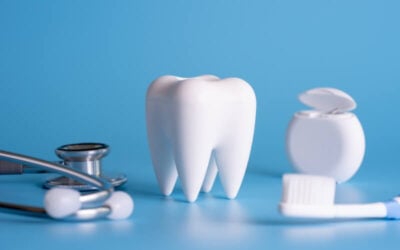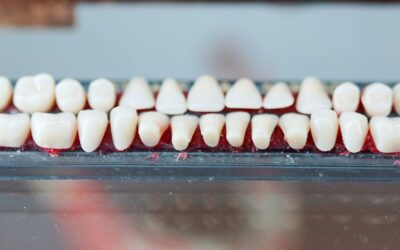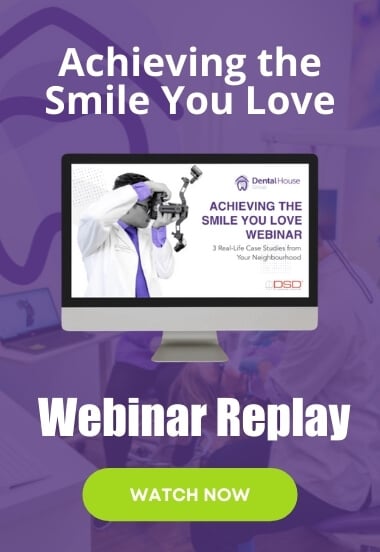The Rise And Rise of Living Costs Are Stopping Us Going To The Dentist
The Rise And Rise of Living Costs Are Stopping Us Going To The Dentist

Since at least 2019, we seem to be moving from one global crisis to another; we suffer one disturbance and shock after another.
We do indeed, live in interesting times.
So interesting in fact, that it’s not so much Confucius but confusion around the origin of that oh-so familiar, ancient Chinese curse.
To move from eristic to heuristic is to know that, “May you live in interesting times” is neither Chinese or an imprecation; and nor is it ancient. It’s British; and not even from an Ancient Briton, just a very old Parliamentarian when (some say) he said it in 1936.
It was a West Yorkshire newspaper, The Yorkshire Post, that apparently first told the tale.
It reported that statesman Sir (Joseph) Austen Chamberlain, addressing the annual Birmingham Unionist Association, spoke of the “grave injury” to collective security by Germany’s violation of the Treaty of Locarno – a pact he’d negotiated in 1925 as the Tory foreign secretary.
The treaty was a series of mutual defence and arbitration treaties among the major European powers; so convinced was he that only with respect, and in consultation with Germany would there be lasting peace.
It was Chamberlain who helped Germany secure a seat on the council of the League of Nations; which seemed like such a good thing at the time.
“It is not so long ago that a member of the Diplomatic Body in London,” Sir Austen is quoted, “who had spent some years of his service in China, told me that there was a Chinese curse which took the form of saying, ‘May you live in interesting times.’ There is no doubt that the curse has fallen on us.”
“We move from one crisis to another. We suffer one disturbance and shock after another.”
Other sources claim that Frederic R. Coudert, Trustee of Columbia University, cited it from a letter of Austen Chamberlain’s to his half-brother, British Prime Minister Neville Chamberlain at a meeting of the Academy of Political Science in 1939.
Which makes more sense, since a year after The Yorkshire Post reported the quote, Chamberlain was dead – an interesting time for him, having already done the living part.
In the Frederic R. Coudert version, the ‘curse’ heaped upon its enemy was, “May you live in an interesting age.” When paraphrased by Robert F. Kennedy in his 1966 Capetown Day of Affirmation Address “in interesting times” endured.
It was the sixties. He was a Kennedy. JFK’s assassination was still a disturbing shock.
Whatever its origin, that’s how we’ve taken it in, and that’s how we’ve taken it on.
Were it a phone plan it’d be grandfathered. We keep hold of it because it lifts the weight of responsibility. It’s not our fault – we are cursed. By an ancient Chinaman no less. You can’t fight that and it’s precisely what makes it an interesting time to live in.
We are in an age when twitter feeds blow up from ideological crusades – it’s an accepted form of idle audience-participation entertainment for its drama, irony and a relentless hunger for a satisfying narrative arc.
Collective fury feels righteous and powerful. Shame campaigns for anything perceived as offensive are carried out with a joyful brutality, patrolling and scrolling to deeply traumatise and leave only debris where once there was a life – that should have remained interesting only to the person living it.
In this interesting time in which we live, it’s a more public, more global and more convenient upgrade of medieval stocks. The sentiment is the same: humiliation and reputation ruination. We’re still throwing stones. Only from a glass hothouse with a maladjusted climate, sucking up sub-par, sub-irrigated sustenance and drip-fed stupidity like trickle-down economics.
What’s also interesting in these interesting times, is that there’s more interest in what we’re not spending on entertainment than there is in the decline in oral health. Both due to the rise and rise of living costs, and extremely interesting in terms of personal priorities.

When did become more important to be seen at an event than checking your health in the dentist’s chair? Who can confidently throw their head back in spontaneous laughter when half their teeth are missing?
Apparently it’s much more interesting to report that inflation is forcing half of Australian audiences to spend less on tickets and seek local events. Of those surveyed, 59% had spent more than $AU50 – in comparison to the 63% that had in the previous six months.
Overall, 42% said they felt financially ‘worse off’ than a year ago – exactly the same percentage of Americans who don’t see a dentist as often as they need to.
And that’s likely a reasonable transatlantic- transferrable statistic.
The cost-of-living crisis is global. Currently, the dental implications for UK patients, and therefore the overall health of the population, is receiving less attention than a man who climbed London’s BBC scaffolding to hit the controversial Eric Gill’s statue of Prospero and Ariel with a hammer.
Inflation and dentistry are related – because in a capitalistic universe, inflation is related to pretty much everything.
Financial pressure leads to hygiene poverty – the inability to afford the basics to maintain oral hygiene. It creates food insecurity where out of necessity, diets become high in sugar and lacking appropriate nutrition.
Good food is expensive.
Such a reduced disposable income pretty much removes the ability to maintain good oral health and have professional dental care. Its impact is widening and deepening: it ripples across families, and resounds through to the lesser salaried of dental teams.
That your brother stayed at your dad’s the night before and took the toothbrush is not the-dog-ate-my-homework excuse. It’s the reality of some children with less than ideal oral hygiene, and a stark reminder of the circumstances that increased living costs bring for many.
To consider that in affluent countries there are households with only one toothbrush, or none, should shock. To find that this type of cost-of-living disparity extends to dental nurses’ salaries and given rise to agency nursing, increases already increased dental costs. Sixty-five percent in this career sector consider leaving the profession because of inadequate pay; particularly with the unavoidable costs of training, registration, indemnity and continuing professional development.
You have to question where moral responsibility has gone when even those employed in dentistry don’t have sufficient means by which to live.
That’s a pretty high marker for the price of dignity. Compassion International states that the opposite of poverty isn’t wealth; it’s enough.
Frankly, we have a wealth of poverty. And we’ve had enough.
Cavities are so much a disease of poverty that the WHO (the one without Roger Daltry and Pete Townsend) cites it as the most common oral health issue, affecting 2 billion people worldwide. The socially and economically disadvantaged have significant bonds with poor oral health, and the current increases in living costs across the world widen that demographic.
Charities report that families are asking for toiletries and toothbrushes because hygiene essentials are bottom of the list when budgets are tight.
And ironically, it’s expensive to live in poverty.
‘Poverty premiums’ include pre-paid phone plans and utility meters, more expensive insurance policies and easy access only to higher-interest credit. Food becomes less affordable when it can’t be bought in bulk. What’s the point when you can’t freeze – or sometimes even refrigerate – it, or can’t afford to turn on the oven?
A recent UK government survey estimated that more than 3 million adults in the UK (6.5% of the population) are currently experiencing hygiene poverty and going without toothpaste, toothbrushes and essential dental products.
Consumption of high-trans-fat, salty-snack, sugar-sweetened, energy-dense foods and beverages becomes de rigueur in food-insecure households.
While food banks, which most communities have, play an important role in people not going hungry they don’t make reducing sugar intake, or complying with nutritional guidelines any easier. A cursory review of the Food Bank Leadership Institute’s (FBLI) annual conference agenda reveals a celebratory approach to food charity: the reality of which is that the hungry are fed corporate surplus consignments, dented tins, wilted produce and day-old pastries that couldn’t be sold otherwise.
Long-term research on food poverty shows there is damage to dignity as well as diet that occurs with the necessity to frequent food banks.
It’s two goes at the trough for the likes of Kellogg’s, Nestlè and General Mills with their donations of unwanted and surplus products to the surplus of the unwanted. Globally, governments announce financial support for charitable food redistribution organisations in the multi-millions.
In essence, it sanctifies and subsidises food waste that earns corporations unwarranted consumer kudos. It dodges, disguises and distributes industrial-scale food waste caused by excessive production and profit-motivated overstocking.
Uncharitably, charities have long been surplus outlets for items that would otherwise collapse prices, incite damaging social media shaming, or involve astronomical disposal costs.
As always, it’s the disadvantaged that reap the grim benefit of being an organic waste disposal unit: the unit, not the waste.
The advantage is to the food manufacturing industry, and to governments absolved of properly addressing the nutrition inequality that comes with the business community not paying a living wage.
Parsimonious policies, low wages, unstable work opportunities and the good-will appeal of community-based charity is an unfortunate path – it’s a cycle track to chronic disease, poorer health outcomes and lives not well-lived.
As everyday costs continue to rise, many will, and many will continue to, experience difficulties in achieving good oral health.
It’s an impact that will not be felt equally, and it will unequivocal.
Hygiene poverty and food insecurity and are just two barriers to basic, health-ensuring dental care.
With already over-stretched health and social systems along with fragmented benefit schemes, it’s more likely than ever that those most in need will fall through the gaps and the holes and the cracks beyond just their teeth.
All of this is a social media platform-storm worth the disturbance and the shock. Having the collective power to correct such long-term injurious injustice would indeed prove that we live in interesting times: right when righting the right to good dental care was made right.
Note: All content and media on the Bacchus Marsh Dental House website and social media channels are created and published online for informational purposes only. It is not intended to be a substitute for professional medical advice and should not be relied on as health or personal advice.
Services we mentioned:
Related Articles
The ADA Pushes For Better Oral Care
Dr Stephen Liew, the Australian Dental Association (ADA) president is coming out firing in the push for better oral care for Australians…
In 2024: What Your Dentist Would Really Like You To Do Differently
Happy New Year Everyone! May you make 2024 your happiest dental year ever. Here’s what your dentist would like you to do differently…
Foods And Supplements That Help Slow or Prevent Gum Disease
Are there really foods and supplements that help slow or prevent gum disease? Dentists will point toward those foods to be avoided…
Something Stuck In Your Teeth? It’s The Past And The Future
The porosity of teeth and bones holds blood, sweat and tears and they’re the kind of stories we like to hear about ourselves ... Were you ever lucky enough to have simultaneously channelled Henry Steele Commager through a jangle of accidents, blunders, surprises and...















